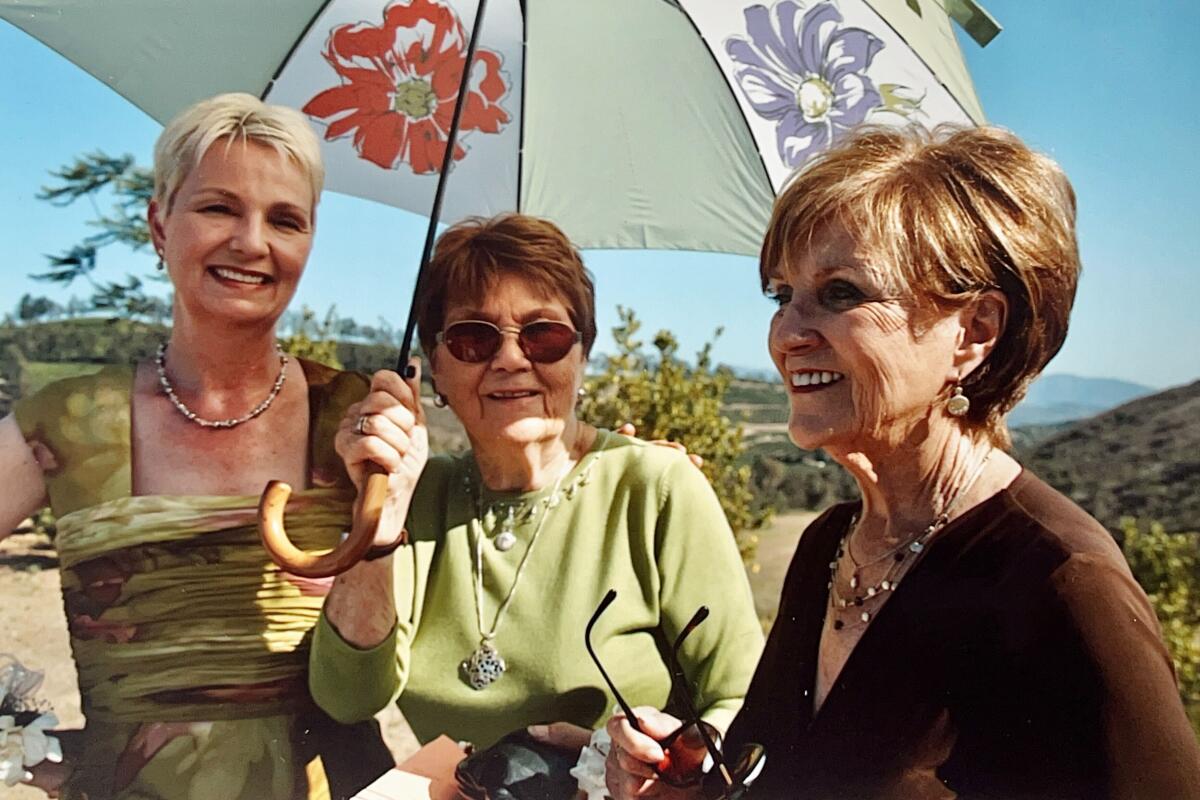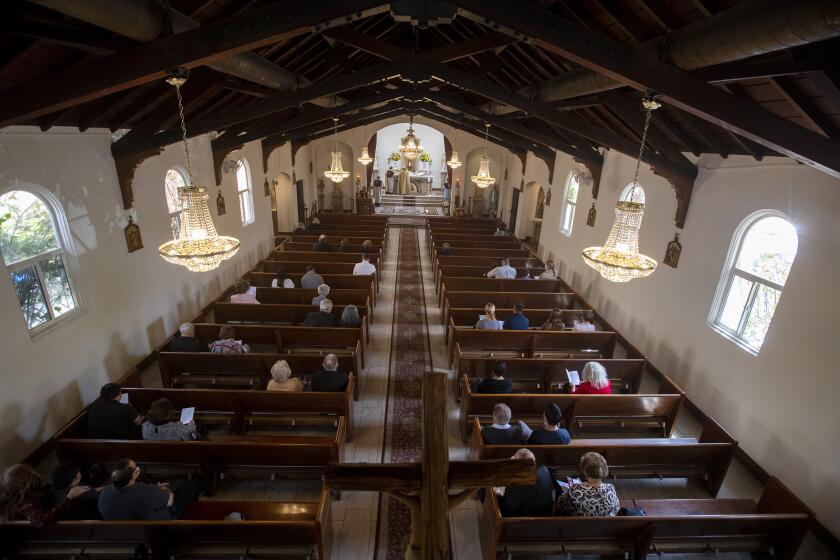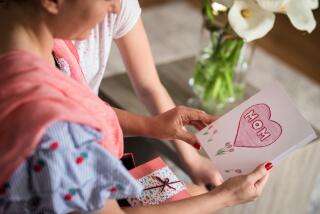Commentary: Mother’s Day without our matriarchs

- Share via
Moms are supposed to die before their children, so a son’s first Mother’s Day without his mom feels less like an outright tragedy than a tragic rite of passage. And on my Norwegian side, Sunday is the first Mother’s Day when all the moms will be gone.
My grandmother (mor mor in Norwegian, for “mother’s mother”) died in 2014 from a chronic illness. Her daughter, my mom, died last year after a brief, catastrophic illness. My great-aunt, the last surviving member of our family to have uprooted from Norway and come to California, died peacefully in February.
I’m among the many Americans today who are nonreligious. As I process my mom’s death, I find myself missing the support that comes with being part of a faith community.
For a family established by immigrants, a Mother’s Day without the matriarchs adds a new dimension to the occasion. It compounds the grief felt from losing extraordinary people.
And these women were extraordinary. This time of year, I used to tell my mom that motherhood wasn’t the most interesting thing about her.
She was a nurse at L.A. General Medical Center who commanded the respect and deference of doctors. On a flight we took 15 years ago, when the call went out for a doctor or nurse on board, the lone physician stepped aside when she realized my mom was the most capable caregiver for the stricken passenger.
She’d give needy patients a ride home after work, much to the worry of her bosses. When homeless people would ask for change, she’d hand over a $20 bill, if that’s what she had on her. A devout Lutheran, she was the type of person who saw Jesus in everyone, even if she had to look really hard.
I shared these memories with her a year ago as she lay in a hospital bed with lymphoma in her brain. That Sunday was her final Mother’s Day.
After my mom died in August, the first person I wanted to see was my great-aunt Margot. Mom was, well, my mom, and she will always be that irreplaceable presence on Mother’s Day — but Margot was the undisputed family matriarch.
She emigrated from Norway to the U.S. in the 1950s around the same time as my grandmother, her youngest sister. Both lived through six years of Nazi occupation, and I learned so much from simply listening to them talk.
Margot outlived all her siblings, and when I saw her that day in August last year, she was 99, confined almost totally to her home in Glendale, saddened by her niece’s death — and concerned I hadn’t been eating enough.
Because if there was anything my tante Margot could fix, it was hunger or feeling lost.
If you found yourself in her house even on a Tuesday night, you could expect to be fed a protein, a starch and something green — whatever it was, you’d go home at least a thousand calories up. Norwegians passing through town had to be only distantly related, if that, to expect an offer of room and board. Owing solely to her indefatigable hospitality, in parts of the old country she might well have been Glendale’s most famous resident.
When I saw her the day after my mom died, all she could offer was a drink and conversation, so I indulged in both with her. (An aside: If you have the chance to talk with someone who’s seen a century of history, take it.) Though she seldom left her house anymore, she promised to attend my mom’s memorial service.
And she did. That hunched-over, halting walk of a 99-year-old woman toward the church was the most heroic act of love for my mom I saw that afternoon, and it could have been her final act as the family matriarch.
Is this a final, unforeseen stage of assimilation, when direct ties to the old country are all but cut and the accents fade as the first and second generations die off? I’m resisting this in earnest, finally trying to become conversational in Norwegian — but conversations are hard to come by with no more native speakers around.
At least, and at long last, I’ve learned how to say “Happy Mother’s Day” in Norwegian: Gratulerer med morsdagen. Too bad there’s no one left who would understand it.
More to Read
A cure for the common opinion
Get thought-provoking perspectives with our weekly newsletter.
You may occasionally receive promotional content from the Los Angeles Times.












